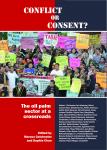
Sarawak: New report details violations of Dayak peoples’ rights by dam builders
19 Aug 2014
A new report issued by SAVE Rivers, a Sarawak Indigenous Peoples Network, details violations of Dayak peoples’ rights by both the government and companies planning to build a huge dam across Sarawak’s second largest river, the Baram.








